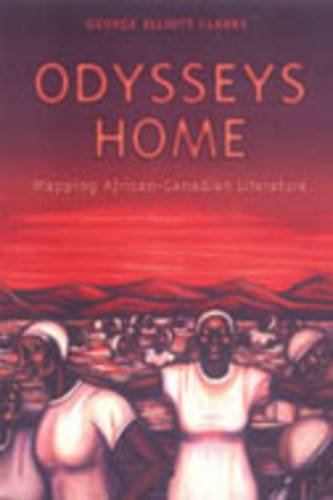

Most ebook files are in PDF format, so you can easily read them using various software such as Foxit Reader or directly on the Google Chrome browser.
Some ebook files are released by publishers in other formats such as .awz, .mobi, .epub, .fb2, etc. You may need to install specific software to read these formats on mobile/PC, such as Calibre.
Please read the tutorial at this link: https://ebookbell.com/faq
We offer FREE conversion to the popular formats you request; however, this may take some time. Therefore, right after payment, please email us, and we will try to provide the service as quickly as possible.
For some exceptional file formats or broken links (if any), please refrain from opening any disputes. Instead, email us first, and we will try to assist within a maximum of 6 hours.
EbookBell Team

4.1
50 reviewsOdysseys Home: Mapping African-Canadian Literature is a pioneering study of African-Canadian literary creativity, laying the groundwork for future scholarly work in the field. Based on extensive excavations of archives and texts, this challenging passage through twelve essays presents a history of the literature and examines its debt to, and synthesis with, oral cultures. George Elliott Clarke identifies African-Canadian literature's distinguishing characteristics, argues for its relevance to both African Diasporic Black and Canadian Studies, and critiques several of its key creators and texts.
Scholarly and sophisticated, the survey cites and interprets the works of several major African-Canadian writers, including Andr� Alexis, Dionne Brand, Austin Clarke, Claire Harris, and M. Nourbese Philip. In so doing, Clarke demonstrates that African-Canadian writers and critics explore the tensions that exist between notions of universalism and black nationalism, liberalism and conservatism. These tensions are revealed in the literature in what Clarke argues to be – paradoxically – uniquely Canadian and proudly apart from a mainstream national identity.
Clarke has unearthed vital but previously unconsidered authors, and charted the relationship between African-Canadian literature and that of Africa, African America, and the Caribbean. In addition to the essays, Clarke has assembled a seminal and expansive bibliography of texts – literature and criticism – from both English and French Canada. This important resource will inevitably challenge and change future academic consideration of African-Canadian literature and its place in the international literary map of the African Diaspora.